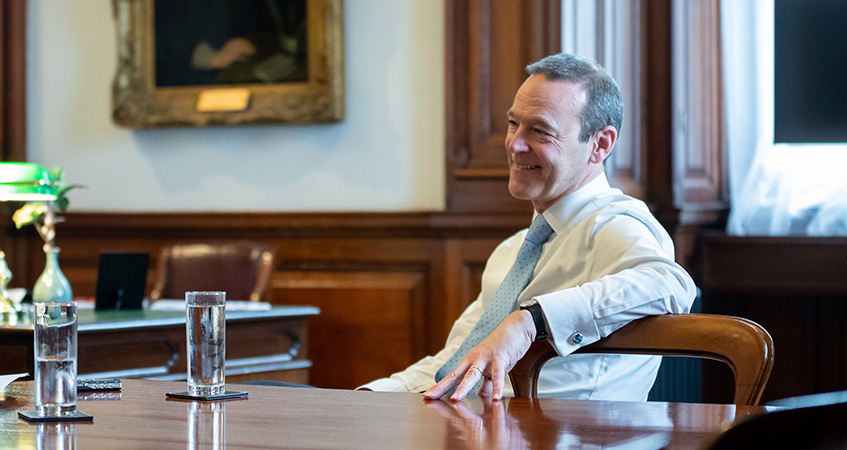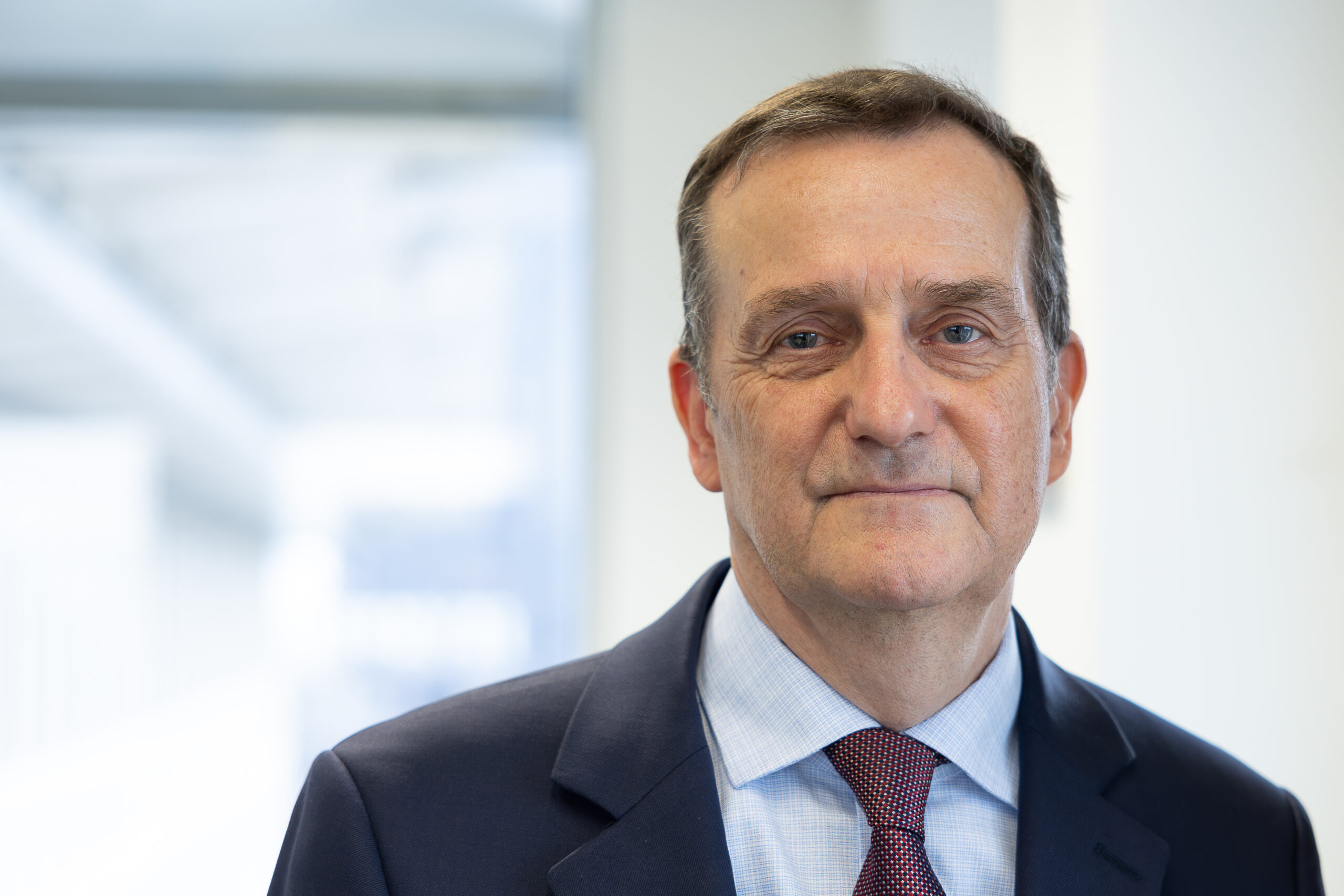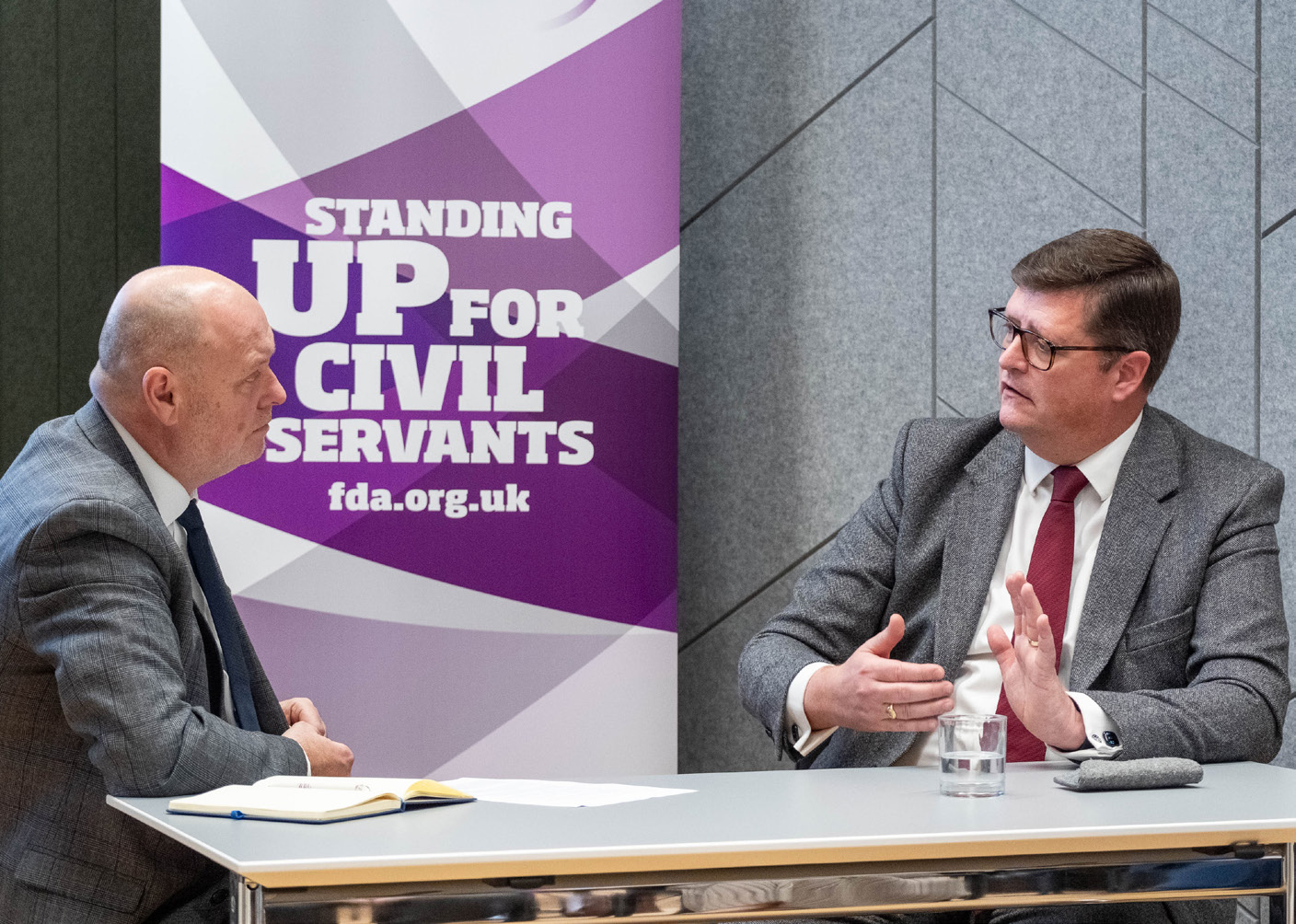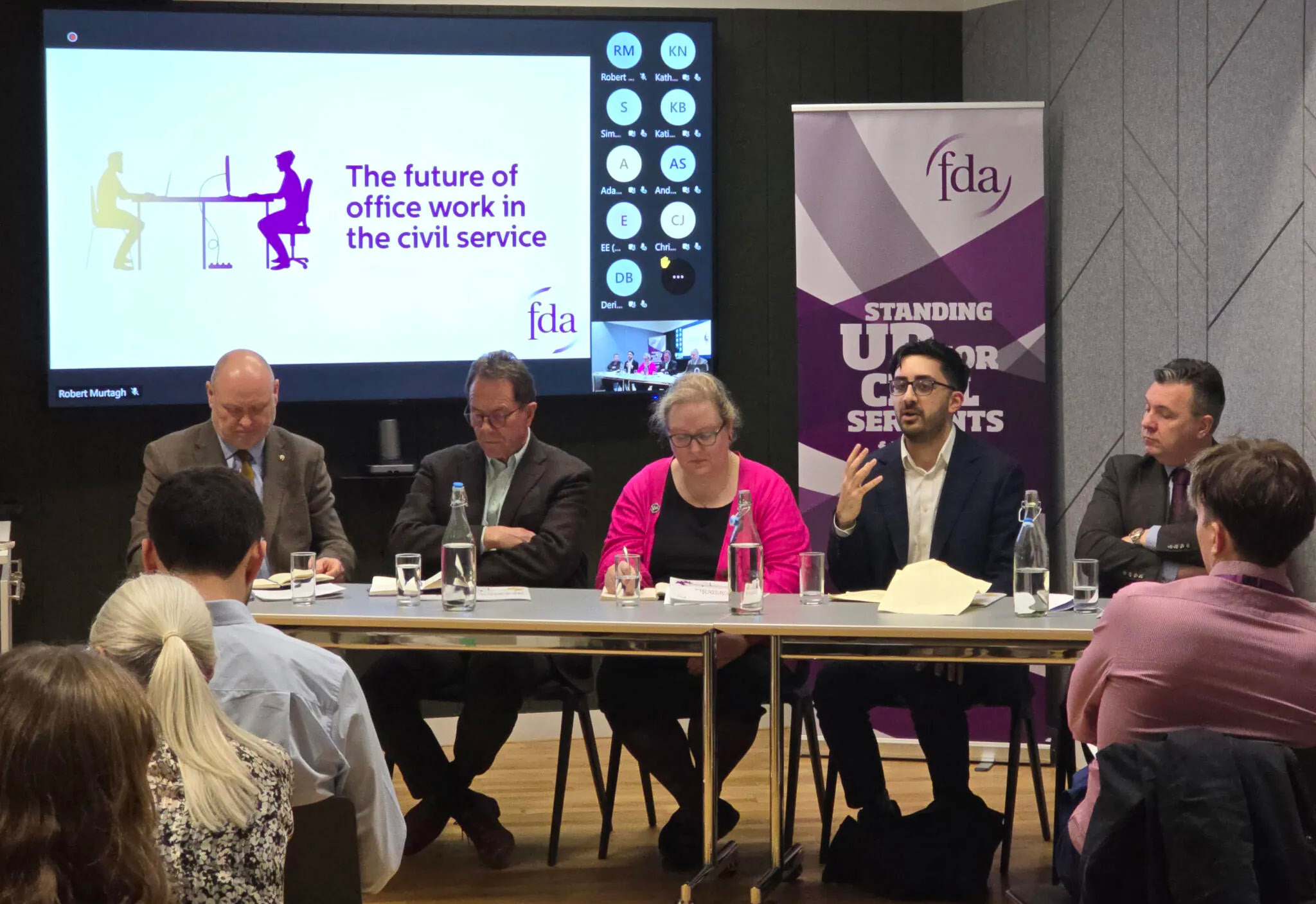Unvarnished, honest analysis: interview with Sir Simon McDonald

For Sir Simon McDonald, civil service impartiality has underpinned his 37-year career at the Foreign and Commonwealth Office (FCO). However, since Britain’s vote to leave the European Union (EU), we have seen a stark rise in attacks on the civil service – and indeed individual civil servants – due to the increasingly polarised Brexit debate. Disappointingly, there’s also far too frequently been a deafening silence from ministers in defending their civil servants, culminating most recently in the resignation of Britain’s Ambassador to the United States, Sir Kim Darroch.
These attacks from certain sections of politics and the media have sought to undermine the impartiality of the civil service, even drawing out Cabinet Secretary Mark Sedwill to publicly defend his civil servants, a move which Sir Simon believes was “very unusual”.
“It is depressing that it is necessary,” he explained. “Because the role of the civil service has not changed and the constraints on the civil service haven’t changed. So, they are choosing a target which they know cannot answer back. That is not good.”
Sir Simon is unequivocal when explaining that the civil service has to be able to “implement the policy of the government of the day, no matter our personal feelings” and, in his opinion, exiting the European Union has been no different.
“Clearly this was personally difficult for some people but professionally our pride is in giving the best advice and delivering the best version of Brexit we can, and I think that’s what we have done for the Government.”
First joining the civil service after graduating in 1982, Sir Simon knew he wanted a career as a diplomat from a young age. “I remember very clearly going to the career’s office in my school when I was 16 years old,” Sir Simon recalled. “…there was a brochure from the civil service and it included model careers. One of them was a man, also from the North of England, who had got into the Foreign Office and served in Kabul and in Brussels and, you know, I thought this sounded really interesting.”
In fact, his enthusiasm for a job in the FCO inadvertently cost him another job opportunity after finishing university. “I remember I got a final interview with HSBC and in those days the chairman interviewed the last group and I went to his grand office in the city,” he explained. “The last question he asked was ‘I see you’ve also applied for the foreign office. If you were to be offered both jobs, which would you take?’ I said ‘Oh, the foreign office!’ and I could tell instantly that this was the wrong answer. He looked as though I’d smacked him in the face!”
“Our pride is in giving the best advice and delivering the best version of Brexit we can, and I think that’s what we have done for the Government.”
Growing up in Salford, Sir Simon was the first of his family to graduate from university and was eligible for a full maintenance grant while his was a student. If you ask Sir Simon himself, he will tell you he “had a privileged childhood”, but in many ways he represents the changing face of the civil service.
A recent report from the Sutton Trust found that 59% of Permanent Secretaries and 52% of diplomats attended independent schools, placing both in the top ten professions with the highest fee-paying school attendance. However, as the Permanent Secretary with responsibility for the diplomatic corps, Sir Simon breaks this mould.
Given his own background, Sir Simon does not shy away from the challenges facing the FCO, and indeed the wider civil service, and stresses that “it is essential for the credibility of the Foreign Office, which represents the whole of the United Kingdom, that we look like the whole of the United Kingdom”.
While the civil service is working on improving the way it tracks the socio-economic background of its staff, Sir Simon admits that there is work to be done, as the measures used are “still being disputed”. However, this doesn’t mean no action is being taken. He explains that “there is a lot more structured outreach than in the past”, with Civil Service Board members paying special focus to developing relationships with non-Russell Group universities and providing speakers to schools that are not within a 60-minute journey to SW1.
Under Sir Simon’s leadership, the FCO has also taken some innovative steps to cultivate a more diverse and inclusive workplace. One such innovation is the department’s ‘diversity wall’, which was unveiled last year to “draw attention to what we’ve done so far, which is not well understood even inside the organisation, but also to dramatise what we still have to do”.
“It is essential for the credibility of the Foreign Office, which represents the whole of the United Kingdom, that we look like the whole of the United Kingdom.”
A part of that diversity wall is the ‘mirror challenge’, a visual prompt for the progress the FCO is continuing to make in reflecting the country it represents. “We have 28 jobs that are in SCS 3 and 4. 13 women had done 15 of those jobs but we still had 13 jobs to go. And so, we put the 13 photographs on the top row and underneath 13 mirrors with the job titles underneath.”
In the year since the wall was unveiled, only one of those mirrors has turned, with Catriona Laing being appointed to Abuja as the first woman to serve as High Commissioner to Nigeria. However, Sir Simon is confident that in the next round of postings “six of the remaining 12 mirrors should turn into photographs”.
Improved representation of women at the top of the FCO is one of many changes Sir Simon has witnessed during his time as a diplomat. When he first joined the department, the Falklands War had just reached its conclusion, the process of decolonisation hadn’t yet come to an end and Britain wasn’t quite 10 years into its membership of the European Economic Community.
“Thirty-seven years later, all of those things have changed and the way we do overseas has changed,” he explained. “In 1982 the foreign office was really the only external player, but in 1997 we had the floating off of ODA (Official Development Assistance) as DFID (Department for International Development).”
“I think the overseas effort when we’re outside the EU will be even more important. I do not think leaving the EU is signalling a decline in interest in the rest of the word or a decline in ambition for the UK on the world stage.”
And of course, a big factor in the changing face of UK foreign policy was the referendum vote to leave the EU, which resulted in the creation of DExEU and DIT in 2016 – what Sir Simon refers to as creating “more foreign policy players”. Despite this, Sir Simon is confident that the FCO and its people remain “key to the task” of delivering a successful Brexit.
“DExEU was always a temporary creation. The clue is in the name. My assumption is that once we’ve left the EU there will be new arrangements for dealing with Europe. Logically, the foreign office is the place to do that.”
With a potentially increased role for the FCO following the UK’s exit from the EU, a large concern is whether it will be given the funding it needs to meet these challenges. A recent report from the British Foreign Policy Group painted a bleak picture of steady decline in investment in UK diplomacy by governments of all colours.
The report was supported by Sir Simon McDonald’s predecessor Sir Simon Fraser, who cautioned that “it is now painfully clear to our allies and adversaries alike that the FCO is way beyond any ability to do ‘more with less’”.
“So it seems clear that continuing on the current trajectory, where core FCO spending is forecast to dip below 0.1% of GDP in coming years, raises significant questions regarding the credibility of the UK’s global ambitions post-Brexit,” he added.
Sir Simon McDonald assured that, on the cusp of the upcoming spending round, he would “be making the case for prioritising the overseas effort”.
“I think the overseas effort when we’re outside the EU will be even more important. I do not think leaving the EU is signalling a decline in interest in the rest of the word or a decline in ambition for the UK on the world stage. But clearly when we’re doing it by ourselves, as we will be, we will need to work harder and we’ll need more resource. So, I will be making that case, I expect the Foreign Secretary to make that case.”
Aside from additional resources, in October last year then Foreign Secretary Jeremy Hunt also floated a very different approach to meeting the challenges facing UK diplomacy: appoint business leaders as ambassadors.
Hunt’s plans sparked controversy, with FDA General Secretary Dave Penman warning it “risks undermining the UK’s interests and influence given the complexities of international relations”.
However, Sir Simon confirmed that this idea was “still on the cards” and played down the potential pitfalls, explaining that the FCO has “always been open to other people coming to do senior work for the Foreign Office”.
At the time of Jeremy Hunt’s exit from Government, plans were in place to advertise a “small number of jobs to all comers with the expectation that one person a year might be appointed from outside”.
It remains to be seen if incoming Foreign Secretary Dominic Raab will stick to this approach, but Sir Simon made clear that he agreed to it based on “two very import conditions” that Hunt signed up to.
“A. That internal candidates would have the same chance as external candidates and B. That the reward package is the same no matter who gets the jobs. Because I can fill all these jobs, I am confident, with qualified internal candidates at internal rates. So, that is the basis on which we proceed.”
Resignation of Sir Kim Darroch: Sir Simon McDonald responds
Since Sir Kim Darroch, Britain’s Ambassador to the United States, resigned from his post following leaked diplomatic cables that were critical of President Donald Trump’s administration, Sir Simon has publicly supported the former Ambassador.
Writing via Twitter, the Permanent Under-Secretary stated: “At [the Foreign Office] we stand together. More colleagues attended my all-staff meeting to express solidarity with [Sir Kim Darroch] than any other in my 4 years as PUS”.
Accepting Sir Kim’s resignation “with deep personal regret”, Sir Simon praised him for behaving “with dignity, professionalism and class”.
“You were the target of a malicious leak; you were simply doing your job,” he added. “I understand your wish to relieve the pressure on your family and your colleagues at the Embassy; I admire the fact that you think more of others than yourself. You demonstrate the essence of the values of British public service.”
Appearing before the Foreign Affairs Committee, Sir Simon described the leak of sensitive communications as a “personal tragedy for a friend and colleague” and assured the MPs present that the FCO would “pursue the culprit with all means at our disposal”.
Despite acknowledging that he will now encourage diplomats to think “more carefully about how they transmit their most sensitive information”, he was also clear that he would encourage his staff to continue sharing “unvarnished, honest analysis”.
“It is what officials need in order to give the best possible advice to Ministers, so that their decisions can be as good and as evidence-based as possible,” he explained. “…We can’t serve our Secretaries of State if we start concealing information.”
Related News
-

Under significant pressure: Interview with Director of Public Prosecutions
Tom Nathan speaks to Crown Prosecution Service Director of Public Prosecutions Stephen Parkinson about CPS’s handling of riots, the importance of impartiality and his plan to help reduce unmanageable prosecutor caseloads.
-

Changing the culture
HM Chief Inspector Sir Martyn Oliver sat down for an ‘in conversation’ event with FDA General Secretary Dave Penman, discussing the pace of change in Ofsted, challenging perceptions and tackling the long hours culture in Education.
-

Hybrid working: Led by evidence, not headlines
Tom Nathan shares the findings and recommendations of the FDA’s recent report on ‘The future of office working in the civil service’.